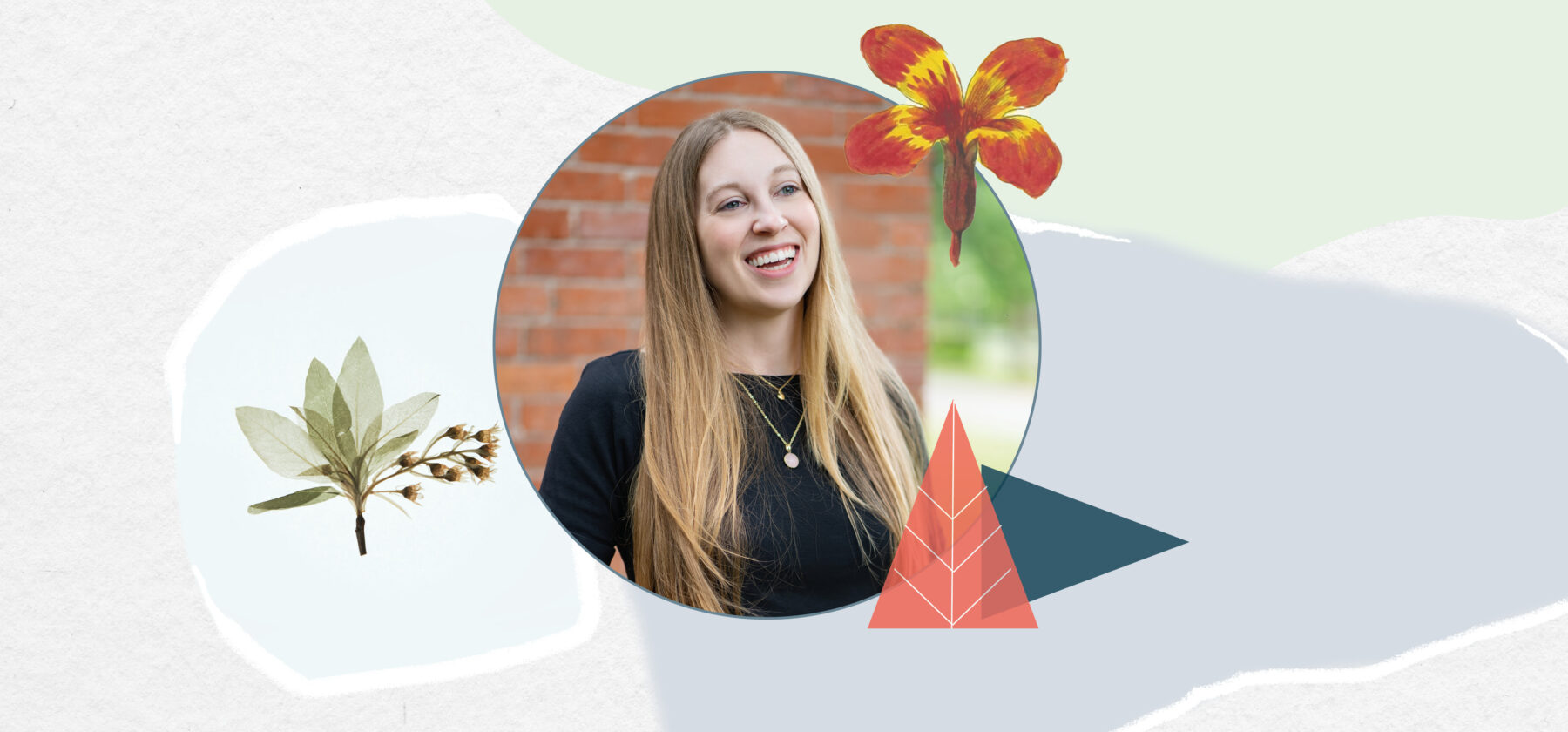The Power of Choice
A version of this article originally appeared in the spring 2024 issue of STILLPOINT magazine.
Dr. Mary Speta points to the top of the bookshelf in her office at Amirah, where a blue monochrome painting of a woman, eyes closed, leans against the wall. “I think of her,” Speta says. “Natalia* is a really beautiful example of the intention behind what we’re doing here.”
Natalia is one of more than 100 sex trafficking survivors served each year by Amirah, a Beverly, MA-based nonprofit led by Speta that provides exit and aftercare opportunities to women in the commercial sex trade. Natalia learned to paint in a detox program, and with the help of Amirah now has her own apartment and sells her artwork. She has a job, and she’s on her way to college.
Natalia’s self-portrait, titled “Eyes Facing Inward,” commemorates a journey of introspection and self discovery that she has undergone through Amirah. “What I love in walking alongside Natalia is seeing how much she has come into her own,” says Speta. “Her confidence has grown so much and she’s exercised that agency muscle, making choices for herself.”
CHOICE
Natalia and Speta, like every survivor of sex trafficking know this: Choice is elusive. Having it is a profound privilege. “There’s anywhere between two and four million people in the U.S. engaging in the commercial sex trade,” explains Speta, “and 84 percent are not doing this of their own choice.” They are either under third-party control (meaning they are being forced, defrauded or coerced by a trafficker, who is often someone they know and trust), or they’re engaging in survival sex (meaning there is no economic alternative). “Poverty, homelessness, the opioid crisis, gender-based violence, systemic racism, incarceration, even the foster care system: any of these elements in a person’s life makes them vulnerable to exploitation.”
“This is a minimum $150 billion industry,” continues Speta, whose recent dissertation focuses on law policy and social research. “If you look at the profits for some of the biggest companies in the world, you could take any five of those companies, and the sum of their revenue in one year is less than what human trafficking generates globally.”
It’s the most profitable industry in the world, but the products are people who have, by and large, not chosen to be there.
STEPPING INTO THE GAP
Enter Amirah. “I serve a God who cares deeply about justice. In these situations, justice is about looking at people as real people and not as moral failures,” Speta says. The vast majority of women in these situations have no other choice but to try and survive against threats of physical harm or forced addictions or subzero temperatures on the street. “Justice here doesn’t just look like bringing a woman out of prostitution,” says Speta. “It also looks like stepping into the gap and preventing it from happening again.”
Amirah offers holistic resources covering three primary categories to help women exit the commercial sex trade and lead healthy, independent lives. First is economic stability, which covers rapid re-housing, career assistance and health insurance. These are critical components in helping a woman get on her feet and achieve independence from a trafficker. Second is communal connections. Because “exploitation thrives in isolation,” Speta says, Amirah offers a safe, lifelong community for survivors to support one another. Third is self-esteem. Women who exit are battling shame, fear and trauma. To be successful on the long road to recovery, they have to believe they are worth the journey.
These are the very resources Speta ‘in fact’ would have wished for in her own lived experience. After five attempts to separate from her trafficker, she navigated the extraordinarily complex process of exiting and the arduous process of rebuilding on her own. “I didn’t have anyone fighting for me, advocating for me,” Speta says. “I love being in this position now and having the resources to put together what the women need. I’m not just here for a job; this is sort of my own situation coming full circle.”
FULL CIRCLE TO FLOURISH
Speta’s full circle moment from survivor to advocate follows a detour in another direction. Trained as a classical singer, Speta spent several years pursuing a path to arts administration, having earned a master’s degree at Boston University and holding positions at the Peabody Essex Museum and Boston Youth Symphony Orchestra. Since joining Amirah in 2018, she has become a public speaker, educator and policy advocate. In August 2023 she was awarded the Diamond Award by the North Shore Chamber of Commerce (MA) for her impact.
Speta, like Natalia, is a model of what Amirah stands for: the choice to flourish in the aftermath of suffering. “It takes weeks, months, years to recover,” explains Speta, “to break down that narrative told to you during exploitation, to rebuild your identity, to learn how to practice agency for yourself. Every single step of the way, she has to choose it for herself. She is the hero of her own story.”
amirahinc.org
*Name changed for privacy
 The Bell
The Bell